#state sanctioned slavery
Explore tagged Tumblr posts
Text
This legalization of prostitution in the nineteenth century by the state is its open approval of that doctrine of the church that woman was created for man. It is an acknowledgment by men that vice is an inherent quality of their natures. It is in accord with man's repeated assertion that only through means of a class of women pursuing immorality as a business, is any woman safe from violence.
In a letter to the National Woman Suffrage Convention at St. Louis (May 1879), Mrs. Josephine E. Butler, Honorable Secretary of the Federation and of the Ladies National Association for the Protection of Women, wrote:
England holds a peculiar position in regard to the question. She was the last to adopt this system of slavery, and she adopted it in that thorough manner which characterizes the actions of the Anglo-Saxon race. In no other country has prostitution been registered by law. It has been understood by the Latin race, even when morally enervated, that the law could not—without risk of losing its majesty and force—sanction illegality and violate justice. In England alone the regulations are law.
This legalization of vice—which is the endorsement of the "necessity" of impurity of man and the institution of the slavery of woman—is the most open denial which modern times have seen of the principle of the sacredness of the individual human being.
An English high-class journal dared to demand that women who are unchaste shall henceforth be dealt with "not as human beings, but as foul sewers" or some such "material nuisance" without souls, without rights and without responsibility. When the leaders of public opinion in a country have arrived at such a point of combined skepticism and despotism as to recommend such a manner of dealing with human beings, there is no crime which that country may not presently legalize. There is no organization of murder, no conspiracy of abominable things that it may not, and in due time will not, have been found to embrace in its guilty methods.
-Matilda Joslyn Gage, Woman, Church and State
#Matilda Joslyn gage#anti prostitution#female oppression#state sanctioned slavery#Josephine butler#english law#women’s history#the more things change the more they stay the same
7 notes
·
View notes
Text
Jesus Fucking Chris! Are homeless people supposed to just hover a few inches off the ground when they need to sleep?!
Nothing like homeless people to turn even the most compassionate people into devout eugenicists. I’m waiting for some politician to pass a law forcing homeless people to compete in Hunger Games or Squid Games-style shows for the entertainment of the public. Lord knows there will be pundits and others willing to defend this sort of thing, because see previous remarks about eugenics.
Ideally, we’d just give homeless people a goddamn house. It’s literally been proven to be cheaper and more effective than any of our labyrinthine bureaucracies or letting them die in the streets.
But if we’re not going to do anything to address the problem of homelessness, is it so much to ask that we not at least make matters worse for them? They’re just trying to live.
Apparently it is too much to ask.
youtube
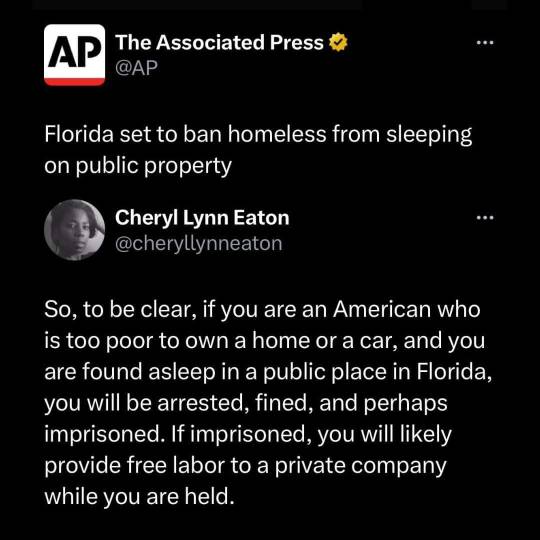
And who enforces this? Is it just a few bad apples, or is it all cops?
How hard is it for them to find cops willing to enforce this? Do they have to sift through hundreds of heroic cops who refuse until they find the one cop who's monstrous enough to enforce this, or do they easily find cops willing to enforce this because monstrous cops are everywhere and being a monster is part of the job?
"All cops are bad" is not a stereotype. It's literally a requirement for the job that every single one knew about.
#police brutality#prison industrial complex#fight the powers that be#state sanctioned murder#state sanctioned slavery#homelessness shouldn’t exist#a boring dystopia#florida#f*ck tha police#longwinded post ftw#the cruelty is the point#poverty is a crime against humanity#Youtube#some more news
29K notes
·
View notes
Text
In any case, white people, who had robbed black people of their liberty and who profited by this theft every hour they lived, had no moral ground on which to stand. They had the judges, the juries, the shotgun, the law-in a word, power. But it was a criminal power, to be feared but not to be respected, and to be outwitted in any way whatsoever.
from Down at the Cross by James Baldwin
#James Baldwin#The Fire Next Time#whiteness as a damaging fiction#state sanctioned violence#antiblackness as the foundation of the world#the afterlife of slavery
95 notes
·
View notes
Text
PLEASE support The Innocence Project. Let the state sanctioned murder of Marcellus Williams radicalize you into caring about incarcerated people. Don’t let those in office that allow for this to defeat you. Incarcerated people are among the most violated and exploited class of people in the United States. We have built a justice system that benefits off of the mass incarceration of marginalized people. Incarceration is used to disenfranchise people. It is used for modern day slavery. Anyone can become incarcerated. It is the quickest and easiest way for your government to strip you of your rights.
20K notes
·
View notes
Text
Garp, Fascism, and Parental Failure
Garp is truly one of the most interesting One Piece characters for me because of the extent to which his dogged, relentless devotion to a fascist system–and the supposed "order" it promises to uphold in the face of anarchy or rebellion–perseveres no matter how many times it fails him and his son and his grandsons. He's fully aware of the deep-seated corruption and atrocity, and feels some kind of moral obligation to bend its rules to protect the innocent (as we can see with his attempts to protect Rouge and Ace), but when faced with widespread femicide and infanticide, genocide, slavery and endless examples of egregious cruelty, he is unable to comprehend the notion that the system is indefensible, or that the only moral choice he can possibly make when faced with that level of atrocity is to leave and resist it. His son recognizing the inherent, inexcusable failures of the World Government and its armed enforcers–literally quitting the force to start a revolution– changes nothing. The order to slaughter pregnant people and infants at Baterilla can't convince him otherwise. The countless instances of bribery, the tolerance of atrocity from state-sanctioned privateers, everything about the history of the Valley of the Gods are all things he's aware of, and takes issue with, but never comes to the conclusion that he cannot affect positive change within a system designed for oppression. The public execution of his grandson–a prime example of the marine's fundamentally irrational, arrogant, vindictive cruelty clearly bound to blow up in all of their faces even before their Pyrrhic victory at the summit war–makes him waver, but even when confronted with this obvious, indefensible injustice against a child he raised and rescued by people seeking to murder him on live TV and desecrate his corpse as a show of power, he cannot bring himself to act against it in any meaningful way no matter how much it hurts him to leave his grandson to die. If he can't veto it, he'll stay Vice Admiral and suffer through Ace being sacrificed on the altar of fascist state control, and functionally leave Luffy for dead in the process while he's at it. He fails every single person he wanted to love–Ace, Luffy, and almost certainly Dragon–and allows himself to be reluctantly complicit in countless crimes against humanity again and again and again because he's so deeply steeped in this notion of preservation of order through state control that he convinces himself that even this disgusting, atrocious, fundamentally flawed and untenable excuse for a government is better than abolition, better than revolution, or just the act of expecting accountability or literally anything better from the systems that issue false promises to protect you. Dadan beating the living shit out of him and calling him a failure as a grandfather, as a self proclaimed defender of the people, is one of the most important scenes in the Postwar Arc because a lesser series might frame Garp as a tragic, helpless figure suffering more than anyone else due to conflict of love and duty, but One Piece refuses to whitewash his actions/inaction or allow the grief and suffering caused by systems he's complicit in to take precedence over its real victims: the D brothers.
There's so much I could say about statism and anarchism and the ways people have internalized the supposed necessity of state violence to the extent they can't oppose that violence even when it ruins them or their loved ones, but that horrible indoctrination and its devastating consequences for both him and his family are what makes Garp so fascinating to watch and so thematically/politically important to One Piece as a whole.
#monkey d garp#monkey d. luffy#monkey d dragon#portgas d ace#one piece#curly dadan#marineford#one piece text posts#portgas d rouge#one piece marines#garp one piece#garp the fist#vice admiral garp#crocodile did more to try and help ace than garp#fucking crocodile
1K notes
·
View notes
Text
PALPATINE: My dear boy. The only thing that we are discussing right now is what you want.
ANAKIN: Hm. Okay, world peace for Padmé, a Best Jedi mug for Obi-Wan - no, that's not me being bitchy, he literally will not accept a bigger gift...
PALPATINE: Yes, you shall have it all. Just -
ANAKIN: Oh, I'm not done. A billion... no, you know what, a trillion credits for Ahsoka, rights for the clones plus backpay and overtime for the war, full rights to their own genetic code, a special vode-only tribune that will investigate Kaminoans and natborn officers for sentient rights violations...
PALPATINE:
ANAKIN: ... slavery is to be abolished across the galaxy, I and any vode who want to join me will be sanctioned by the Republic to hunt down slavers, starting with Tatooine, hair cream for Windu - okay, that one is me being bitchy - and, well, I guess I'd want a fleet of the absolute best ships for me. As a treat.
PALPATINE: I see. Are you done?
ANAKIN: I guess. How soon can you deliver?
PALPATINE: Well. As it stands... it might... take some time.
ANAKIN: That's cool. You can get all the legal stuff done tomorrow, just call in a special session of the Senate, but I get that commissioning a fleet will take some time. I didn't even give you a list of models or anything.
PALPATINE: ... yes. I can't help but to think that you're disregarding your wife's safety here.
ANAKIN: Oh, no. I'm being smart.
PALPATINE: You are?
ANAKIN: Yup. Padmé is a completely healthy woman. Her pregnancy is very low risk. So, if she's going to die in childbirth, it's got to have something to do with the war, right? If we end the war, there's no danger to Padmé.
PALPATINE: Have you forgotten what I told you about Darth Plagueis the Wise?
ANAKIN: No, but if I use Sith Magic to save her, she's probably going to turn into a zombie or something. Trust me, Chancellor, I've seen it before.
PALPATINE: I'm afraid to ask, but where have you seen zombies?
ANAKIN: Eh, you can check my mission reports. Anyways, if you just hand me your credit chit, I can get to buying Obi-Wan that mug, giving Ahsoka the trillion and all that.
PALPATINE: Well, I...
ANAKIN: And if you don't want to go through with this, I'm definitely going to murder you right now. You being a Sith Lord and all that.
PALPATINE: Oh.
ANAKIN: Yeah.
PALPATINE: Well, here's my credit chit.
ANAKIN: Thanks, Sheev! Just one more question. What are you getting out of this?
PALPATINE: ... I'm going to declare myself Emperor and bring about the age of the Sith.
ANAKIN: Okay, that's cool.
PALPATINE: It... is?
ANAKIN: Sure. I mean, you basically are an emperor already, and we have freedom of religion. Just make sure that your Empire is strictly democratic, or else Padmé's going to be mad at me.
PALPATINE: I... what? The purpose of an Empire is to do away with democracy! Cut away the rot of bureaucracy!
ANAKIN: Chancellor, do you remember the conversation we had just now about me murdering you?
PALPATINE: Yes, but you hate the Republic too!
ANAKIN: I know, but work stuff can't come between me and Padmé. One of the rules of a successful marriage. Anyways, get it done. I gotta go buy a mug and some hair cream.
-------------------------------
BREAKING NEWS!
PEACE! Supreme Chancellor / Emperor-Elect Sheev Palpatine has announced the immediate cessation of hostilities between the Republic and the CIS along with a slew of other groundbreaking proposals. The Supreme Chancellor stated that with the death of General Grievous...
The Coruscant Herald spoke with Jedi Master Obi-Wan Kenobi, also known as the Negotiator.
"I've got this mug." said Master Kenobi, before launching into a protracted rant about the state of our democracy.
"I got back from Utapau, and Anakin tells me that he 'kind of' turned to the Dark Side. How do you 'kind of' turn? But now we have galactic peace. But we also have an Emperor. Well, in three days we will have an Emperor. But the Emperor is going to have less power than the Supreme Chancellor has right now, and they're the same person. Not to mention that he's the Sith. My entire life has turned into a philosophical nightmare on whether the ends justify the means, and it's all being personified by this blasted mug." ...
Senator Padmé Amidala of Naboo had a brief conversation with the Herald.
"Well, I think of it like a retirement present. A lifetime achievement award. He is an older man, and no doubt he'll abdicate in due time. This will be an interesting footnote in the history of the Republic." ...
Spokesbeing for the Shmi Skywalker Foundation, Anakin Skywalker spoke at length with our reporter.
"Well, we at the Shmi Skywalker Foundation offer only two things: freedom to slaves and death to slavers. And sometimes imprisonment to slavers, because Obi-Wan and Padmé were pretty adamant about that. And also financial aid, legal aid, housing, therapy, et cetera. For the freed people. So I guess we offer more than two things, but they're all good things."
"Sheev? Sheev is great. A nice old man. I think he's going to abdicate in, oh, three years or so? [Editor's Note: Transcript is garbled due to the Emperor-Elect coughing suddenly.] [...Yo]u need a glass of water, Sheev? Get him - yeah, one of you red guys, get him a glass of water. You're not a young man anymore, Sheev. Yeah, I think he'll abdicate within three years."
Emperor-Elect Sheev Palpatine declined to comment at this time.
#star wars crack#star wars fic#anakin skywalker#obi wan kenobi#padmé amidala#fanfic#revenge of the sith#clone wars#padme amidala#star wars
245 notes
·
View notes
Note
What I really struggle with in HP is JKR's shallow neoliberal world-building, and how it forces characters to navigate it quite awkwardly. As a big fan of the werewolf lore, I hate what she did there. I want to accept some of the self hatred and oversimplification of the society as complexities of the characters, but some of it also just feels like bad writing. Of course I am a bit of a Lupin stan and I'll do some gymnastics to try to make him a better man/werewolf than he'd ever be (I like to picture him as kind of a Union rep), but I don't know, I just really feel like canon is lacking. Am I just not a great reader?
no, i don't think you're a bad reader, anon.
when it comes to worldbuilding, jkr is certainly no tolkien - a lot of the inconsistencies in canon [i.e. why dumbledore flies to the ministry in philosopher's stone] come from her not having the world fully mapped out prior to writing, and, while this isn't as much of an issue as the fandom makes out [lots of authors adapt their worldbuilding as they go along!], it's definitely exacerbated by the fact that she has a tendency to claim certain inconsistencies were intentional.
the series' politics are also clearly incredibly neoliberal. and part of this [such as the fact that the order is defending the "sensible" status quo] is obviously a bleed-through from jkr's worldview, and i think it's legitimate to acknowledge and criticise that and how it manifests itself in the doylist text.
nonetheless, i think it is worth saying that the fandom has a tendency to criticise aspects of the text which ought instead to be understood as intentional spaces we can devote our energy to filling in. the genre conventions of the series require it to become an uncomplicated good-versus-evil trajectory which ends with all being well - and i do think that, when we're criticising jkr's writing, it's important to acknowledge that the ending of the series feels unsatisfactory because it does these conventions properly, rather than in spite of that fact. similarly, the reason that apparently key aspects of wizarding society [law, politics, etc.] don't get discussed in detail is because they're not the series' focus - i've mentioned elsewhere that i'm obsessed with the concept of wizarding medicine, and that i find the way this is presented in the series really shallow, but i recognise that this is because medicine isn't something the series wants to focus on. order of the phoenix is too long as it is - we don't need 200 more pages of detailed descriptions of how healers learn their craft...
and so i think it's fun for us to work in our own writing to make the worldbuilding feel a bit more cohesive.
the easiest way i've found to square this circle with the watsonian text is to recognise that harry is a partial narrator. he's someone with an incredibly self-serving, black-and-white moral code; he's incredibly privileged within wizarding society and comparatively privileged within muggle society [by which i don't mean that he isn't neglected by the dursleys, but he's also canonically white, able-bodied, cisgender, a native english speaker, well-educated, raised in a middle-class household and so on] and, therefore, never has to actually think about the politics and structure of wizarding society; and he's also a teenage boy, which explains him not being particularly observant or politically aware.
[the best example of this is, of course, that he doesn't give a shit about sirius' treatment of kreacher - because he likes sirius - and he doesn't consider his own mastery over kreacher to be a moral abomination - because he's shown to not really understand the broader social impact of slavery - but he detests the malfoys' treatment of dobby entirely and only because he dislikes the malfoys.]
his attitude towards lupin - and his attitude towards werewolves more generally - can be made sense of through this, i think. harry doesn't care about the broader state-sanctioned oppression of werewolves because it doesn't impact him, he cares about lupin's experience because it does; harry doesn't notice the imperialist overtones to lupin's self-presentation [that is, that he bears "the unmistakable signs of having tried to live among wizards"] and considers lupin's embrace of "civilisation" to be a good thing [in comparison to werewolves like greyback, who reject it] because it's what he personally considers legitimate; harry focuses on specific aspects of lupin's character because he's not a omniscient perspective - he's a [canonically short-sighted] teenage boy.
69 notes
·
View notes
Text
Belleview Chapter One: Welcome to Belleview
Notes: ~11 years after the beginning of The Fighter, this is not a Luke/Leo story but is in-universe.
TW: Institutionalized slavery, nonsexual nudity, starvation mention, human euthanasia mention, degrading language, all the things.
✥ ✥ ✥
From the outside, it is a beautiful campus. Elegant in its simplicity, with three brick buildings forming a crescent at the mouth of a long, rose-bush lined drive that intersects wrought iron gates.
Today, police swarm it, more for the optics than anything else. They’re not here to enact change, or to start building moral credit, but they are here, and so he smiles, shakes hands, introduces himself.
He opens the double-paned glass door, which sits just in front of a set of reinforced steel bars, and he’s immediately met with the silence of a reception area from which all of its workforce has been escorted out.
Almost all.
“Lincoln Prescott?” says a singular man, in his mid-twenties on his best day, peeking around the corner. He’s nervous, skittish even. Fidgeting palms run down his sweater and he smiles, but it’s not the smile of someone who’s happy, welcoming, comfortable, warm.
Lincoln returns the gesture and nods. He doesn’t extend his hand. Instead, he turns over the key he’s just been handed, and he reads the man’s name-tag.
Jared Fisher, Handler. Level Two.
Jared smiles sheepishly and takes off the name-badge. “I wasn’t sure if I should wear it. I guess… I guess it’s not really needed anymore.” He holds it out to Lincoln, who stares at it for several seconds, before he sets it on the counter behind him.
“Uh,” Jared says, cutting through the silence of the massive waiting area. “I’m sorry. I know, I’m sure, that you’re not– I get it, I mean. I know I’m the enemy here.”
Lincoln narrows his eyes, shaking his head once.
“They said if I– Uhh, they said they’ll take it into c– consideration, I guess. When the trials start. When… whatever is going to happen, happens.” He swallows, and Lincoln feels something that is related to sympathy, but not quite it. He lets that feeling fizzle quickly. “I didn’t mean to hurt anyone," Jared says quietly.
There’s silence again. Lincoln lets it settle over him, watching the ex-handler’s fidgeting intensify, before he says, “Oh. You’re waiting for me to speak.”
Jared shrinks.
When the final nail in the coffin of support for the trade and consumption of government-sanctioned slavery had been hammered in, there wasn’t the type of frenzy that anyone expected. That morning, people, by and large, woke up, had their coffee, showered. They caught their trains to work, they read their news and they watched, closely, but there wasn’t an uproar. They stole glances at their phones and monitors for updates, for news, for what happens next.
Truth be told, it had been heading this way for a while. Within the last ten years, individual states had begun passing legislation that, in hindsight, paved the path for widespread challenges to the system, led by a few congresspeople who finally woke the fuck up. Things turned violent early, with protests, rallies, boycotts, demonstrations… everything imaginable.
Videos of workers being tortured, followed by videos of workers recounting their own stories, began making national headlines. Consumers of workers’ labor fought hard to sway public opinion back to the positive outcomes the system had brought the country, but with each passing week, with each new video of a worker strapped to a table being violated in unimaginable ways, it was a losing battle.
As local legislation was passed, certain states became a kind of safe-haven for runaways. And eventually, things started going federal.
The most significant bill, the one that fully outlawed the use of worker labor and reinstated the ‘freedom’ of current workers, was going to be codified that morning. It wasn’t unexpected, at that point, but still, the infrastructure, the plan, was… well, it had holes, to say the least.
The workers who were deemed functional, by some arbitrary metric, would be relocated to massive government-owned housing units. They would share rooms by the half dozen, be fed, given medical attention, and slowly be reintegrated into society. No one knew exactly how that would work, but it had been successful in the states that had already outlawed worker labor (with some notable exceptions), so the plan, half-assed as it was, was set into motion.
Former safehouses were repurposed as halfway houses for those who were less “independent.”
Individual volunteers were gathered who would open their homes to those who were unable to care for themselves but didn't pose any significant safety or medical risk.
In the days leading up to the vote for reinstatement of worker rights, when it was clear how things were going to go, people did go into a frenzy. Hospitals scrambled to hire, doctor’s offices scrambled to modify policy, the call for volunteers to offer shelter, food, medical assistance, jobs… it was madness.
But that morning, the morning the final nail landed, it was quiet.
Jared leads Lincoln down a narrow hallway, spouting off information as he does. The linoleum tiled floor is clean, but peels around the edges. The walls are white, chipped along the corners and where the doorframes meet the drywall. The ceiling is white, but there’s a yellow cast. The fluorescent lights that line the halls give it a sort of eerie post-apocalyptic vibe, and it’s fitting.
The building, Belleview, is eerily quiet. There’s no obvious screaming coming from within, so it’s already better than he expected.
Jared slaps his keycard against a box outside a set of double doors, and Lincoln takes a breath. The volunteers are gathering outside by now. His group of nurses, doctors, caretakers. They could be with him, but he wanted this run-through alone. To give him time to make sure the plan that he spent the last week finessing would work.
Jared stops at the first door, and pushes a button outside of it, bringing to life a screen. There’s a name on the top, and Lincoln glances through the information he’s shown. Jared presses another button, and the door unlocks audibly, the light above it turning from red to green.
Inside is a man, with nothing else. Brown hair, blue eyes. He doesn’t look at them.
“This one can get aggressive.” Jared’s voice is matter of fact, as he points out the information on the tablet. “They come here to… you know, to be of whatever use they can be until they…” he whispers, and Lincoln offers him the briefest of glances. He regrets it immediately. “Expire.”
Lincoln turns his attention back to the screen, and so Jared continues. “We have 21, uh… residents, right now. I think that’s what we’re supposed to call them now. They were… well, you know. They were workers, but the rejects, I guess. They’re in… they’re in various states of um…”
Lincoln clears his throat tersely, throwing a warning glance to the ex-handler.
“Well, okay. I’m sure you’ve been briefed, and if not, I’m sure you will be.” He begins walking again, letting the last door close without another glance, as he approaches the next. “We tried to take as good of care of them as we could. They’re fed and watered and we tried to... whenever we could, some of us tried to offer them some comfort.”
He stops at the door. “Obviously, they’re here for a reason, so they don’t tend to be super… uh, super cooperative or trainable or anything. They’re usually just… they’re here for a short time, and then–” He stops himself this time, without the warning glance.
“We call this guy Tank, but I think his real name is Tyler, if that means anything to you.”
Lincoln nods. “Does it say here? Anywhere on here? What his name is?”
Jared fiddles with the screen for several seconds before it comes to a demographic page. It lists 20 inhabitants, and presumably, their room numbers.
“Look at that,” Jared says then, interrupting Lincoln’s review. “Looks like I was right, it is Tyler. That was a guess.”
Lincoln takes a breath, because there’s no benefit to causing a scene here. If Jared was offered leniency, then he was a handler who, at least on the surface, wasn’t as bad as he could have been.
“Anyway, this one used to be aggressive, too." The door opens and Jared gestures to the man who lays on his stomach, bandages across his back. "But now? Nothing going on in there.” He points to his own temples, and lets the door swing shut. He switches to the video feed, where Tyler stares into the camera.
Jared continues along to the next room, and Lincoln follows behind him, his thoughts racing.
Lincoln Prescott was already in his car on his way to the site he’d been assigned to oversee before they even finalized things in the White House. It’s a temporary solution to a very serious problem, they said. It would take ten to fifteen days to get those who were in no shape to get to a halfway house the medical attention they needed and find suitable placements for them.
In the meantime, they were safest where they were. He was needed to help organize the volunteers and medical personnel, and to act as a sort of director of the temporary housing facility.
So he drove. He knew it would be bad, maybe the worst of the worst. He had been briefed. He was given a stack of files of the inhabitants that he would be overseeing. He looked it over that night, and every night since then. He spent the last six days memorizing every face, every backstory.
It was a site to house those that the government had deemed unable to be placed, for one reason or another. Too violent, too unpredictable, too difficult to be trained. From what Lincoln could gather, these workers served any and all purposes. Their primary reason for existence was, it seemed, to trial training techniques, to trial drugs, to motivate the workers who were difficult, to show that there were worse fates.
They ranged in ages from 19-26. None survived longer.
“Doctor Prescott?” Jared asks, from somewhere far away. Lincoln looks up from the tablet, and Jared is already down the hall at the next door. Lincoln takes a breath, biding his time. They’ve gone through eighteen of the men, with Jared's special commentary on each of them. Twice, Jared had promised that he wasn't a bad person, and that the culture had been one thing, but now it was another, and he was ready to pivot.
Only once had Lincoln felt himself snap, and had to excuse himself before serious harm was done.
Some of the men were given the accommodation of a bed, some of them were given clothing, some had rotten food in their cells, some had broken bones, open wounds. Some slept fitfully, and some slept so completely still that Lincoln thought that they might not be alive at all. Jared had assured him, in those moments, that they probably were.
Jared opens the door to the twentieth room, with a small, “We call this one ‘Felix.’ I think you’ll like him,” as he does. The man, short blonde hair and dark brown eyes and at least forty pounds less than his frame should support, blinks himself awake. He sits in the corner of the tiny room and stares at Lincoln. He tries to smile, but the tremors that rock his body make it hard to buy. He doesn't wear any clothes, and has one of the DLS-issued shock collars affixed to his neck. His ribs shake when he breathes too deep, but again, he tries to smile, even as he backs further into the corner.
Jared is speaking to him, but Lincoln doesn’t clock exactly what’s being said. The man looks so afraid, but still, he lifts his fingers in a sort of wave, shaking as he does. Lincoln waves back, offering him a small smile in return.
“We’re not allowed to euthanize them,” Jared is saying.
“What?”
“When they hit the end, I mean. We have to give them enough food, give them enough water. If they choose to stop eating or drinking or… whatever, that’s on them. We can’t assist them. Once they’re too far gone, sometimes we’ll just stop trying to get them to eat, and let them go.”
He thought, by now, that he’d heard it all. His eyes widen. “Is that where we’re at with him?”
Jared shrugs. “He’s sick. The director said he’s gonna go any day now, but it’s better if we don’t directly cause that.”
Lincoln doesn’t attempt to keep the hatred out of his eyes.
“He knows,” Jared says. “They all do. Once we stop pulling them for testing, it’s only a matter of time. He wants you to pull him, though,” he continues. “He wants to know it’s not his time yet. He wants to show you he can still be of use. He doesn’t really speak anymore, but he tries to be sweet, so we will keep him in rotation.”
“Stop talking,” Lincoln says then, his fist in a tight ball but, remarkably, not around the man’s throat. Jared’s mouth snaps shut.
“Show me the last one, and then you’re finished here.”
As they retreat away from the man’s cell, the door closes behind them, and Lincoln watches the hope leave his eyes.
They make quick work of the last door, and the weasley man leads Lincoln back through the main wing, mumbling about how there were several wings they didn’t tour, but he at least got to see all the residents, and how if he has questions, he is more than happy to take a call, day or night, and how…
✥ ✥ ✥
The volunteers stand in a haphazard group, each with a color coded name-badge to at least give Lincoln a starting point as to their role. He begins by directing the doctors and nurses to rooms, providing instructions on how to access the rooms, providing instructions on how to access the medical files, providing whatever information he can.
They’re working on finding placements for each of these boys, he tells them. But they all require intensive, specific treatment. As they find placements, they’ll be housed, and once they’ve placed the last boy, the volunteers will be reassigned.
As the last of the volunteers heads inside to get their own bearings, Lincoln takes a step back, regarding the innocuous building.
“I guess that’s that,” Jared says from behind him, taking a step forward and extending his hand out once more. Lincoln looks down at it, shoving his hands into his pockets, as Jared mumbles, “Welcome to Belleview.”
UNTITLED SYSTEM COLLAPSE STORY TAGLIST: @pigeonwhumps @peachy-panic @whump-cravings
#belleview#institutionalized slavery#this is going somewhere#its going places#maybe not to the pulitzer prize people#but places#nonsexual nudity#torture mention#government stuff#it's a set up ok#they'll be sweet soft guys eventually
100 notes
·
View notes
Note
Do you think people in the fandom would be more forgiving towards Sasuke character as a whole if we got the show from his perspective or if not that then if his thoughts are more shown?
I find myself drawn to his character because, in many ways, I see reflections of my own inclinations, albeit magnified. The tumultuous events that unfolded within his clan and the devastating actions of his brother, wiping out everyone, add a layer of complexity to his character. It's kind of intrigued me to consider that, under similar circumstances, I might make similar choices, perhaps even worse. The Narutoverse, with its deeply rooted issues like child soldiers, clan annihilation, and internal slavery within the Hyuga branch, presents a grim reality. While some characters, and even elements of the fandom, criticize and reject his actions, arguing that trauma should not be an excuse, it's hard to ignore the systemic problems within the Narutoverse itself. The pervasive cycle of suffering, with clans being wiped out and individuals enslaved, points to a broken system that breeds villains and antagonists seeking change.
In contrast to the complacency and cooperation displayed by many characters, those who rebel against the established order and strive for something different, flawed as their execution may be, at least attempt to address the root issues. The fact that they are trying to break free from the oppressive system suggests a level of agency and resistance, even if I may not fully agree with their methods. That's why I'm more forgiving towards the antagantis like Pain, Madara and especially in Sasuke case.
Reflecting on Naruto's journey and his current achievements the fundamental issues persist unchanged.
Also, sorry if this got long I ramble a lot when discussing lol. I hope you have a good day.
Hello, this took long to reply, and for that, I apologize.
I don’t think the issue is “not having Sasuke’s thoughts on display” for him to get sympathy, as we get to see firsthand the reasoning behind his actions, his background, and connections; we also get to see the atrocities committed by the system on multiple characters including those that the fandom takes as “less controversial” and which are considered victims of a bigger scale than Sasuke. I put more blame on the naturalization of state-sanctioned violence and the oppression of minority groups who are then blamed for their village’s actions as they are “savage-coded,” which turns the government’s oppression into a response to their behavior rather than an action born from their own bias. Their ultimate argument always boils down to “fighting violence with violence is not the way,” yet they fail to understand that a government built with brutality as its primary basis and as its primary tool leaves no room for negotiations, as it also implies that those oppressed continue to be oppressed until a “solution” is reached through time. They blame those discriminated against and later on massacred for their demise and not those in power who decided that committing genocide was a plausible solution to their dispute.
The main issue with the idea that “their hearts are in the right place, but I don’t agree with the antagonist methods” also derives from this same perspective, where the discriminated must take all the consequences of the persecution they suffered and choose the “moral high ground” still to keep being “victims” and not become “victimizers.” Their categorization as innocents/savages is always based upon their response to the mass killing of their kin, minimizing the actions of those in power and diminishing the value of their critics to the system in place.
Yet, while the naturalization of state-sanctioned violence plays a part in Sasuke’s status as a “villain” by many of his detractors, it’s not the only one, as many feel Naruto has a similar (perhaps harder) experience with the system in place as he was ostracized, yet he chose to follow Konoha’s WoF –many fans are closer to experience something similar to Naruto (an unpopular kid that was often shunned by comrades), so they feel more inclined to stand behind a character that reflects a personal experience of them, and not behind the boy who suffered genocide, a thing not many can see themselves in nor can build sympathy for as they (again) naturalized such occurrence.
The popularization of the action genre featuring first-world soldiers invading the global south, whose focus is more on the trauma that lingers in the invader for trying to bring peace than on the indiscriminate killing of minorities, also contributes to seeing those in power as more humane or deserving of redemption than those responding violently against the intruders, because those invaded should put their trust in the “good intentions” of those abiding by the system that destroyed them in the first place.
60 notes
·
View notes
Text
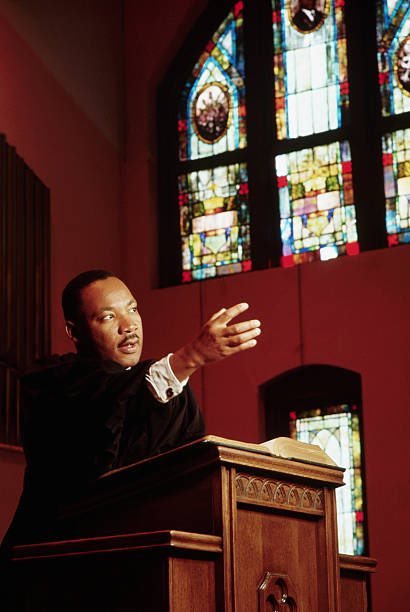
Bernice King's quoting her father Martin Luther King: “We must use time creatively, in the knowledge that the time is always ripe to do right.” #MLKDay #MLK95 #MLK

Bernice King quoting her father Martin Luther King: “Our only hope today lies in our ability to recapture the revolutionary spirit and go out into a sometimes hostile world declaring eternal hostility to poverty, racism, and militarism.” #MLKDay #MLK95 #MLK
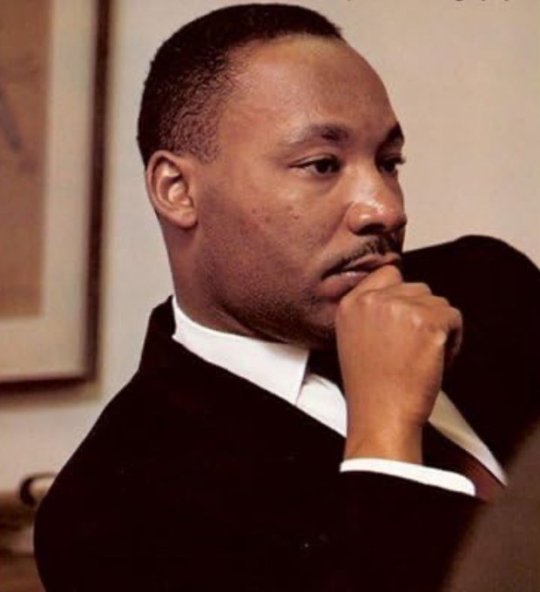
Bernice King quoting her father Martin Luther King: “Now let us begin. Now let us rededicate ourselves to the long and bitter — but beautiful — struggle for a new world.”

Bernice King quoting her father Martin Luther King: “True peace is not merely the absence of tension: it is the presence of justice.” #MLKDay #MLK95 #MLK

Bernice King quoting her father Martin Luther King: “A nation that continues year after year to spend more money on military defense than on programs of social uplift is approaching spiritual death.” #MLKDay #MLK95 #MLK

Bernice King quoting her father Martin Luther King: “A Church that has lost its voice for justice is a Church that has lost its relevance in the world.” #MLKDay #MLK95 #MLK
#Bernice King#Martin Luther King#the carceral state is waiting#hegemonic violence#quotidian surveillance is business as usual#state sanctioned terror#the Black fugitive as the shape of mystery#the possibilities of refusal#care is the sweetest touch#antiblackness as the foundation of the world#the afterlife of slavery
106 notes
·
View notes
Text
The C.S.A.-the only explicitly proslavery nation-state formed in the modern period-inherited all of the contradictions and liabilities of the older slaveholding states of America. With independence the slaveholding states got their wish, shaping their new government to establish rights of property in slaves as wholly within the control of the individual states. Sitting down to write their Constitution in Montgomery, Alabama, members of the provisional government crafted a document that defined slaves explicitly as property, put slaves definitively outside the boundaries of the political community, prohibited the incorporation of any new state that did not sanction slavery, and put it beyond the power of their federal government to limit, revoke, or otherwise interfere with the legality of slave property or rights of slaveholders.9 These were the purposes for which the C.S.A. was formed. Governor Brown of Georgia described the Confederacy as a "league between sovereigns," and the central government as "the servant of several masters, not the master of several servants." Slaveholders had finally gotten the state they wanted.
That was the state with which they would have to wage war. With 40 percent of their adult male population enslaved and unavailable for military service, Confederates faced a structural problem from the outset. "The seven Confederate states have not more than double the number of the male population capable of bearing arms, which has been offered to this [U.S.] government as volunteers since the 15th of this month," John A. Campbell, the recently resigned associate justice of the U.S. Supreme Court, secretly advised President Davis in April 1861." The problem would hardly abate, even with the addition of eight Upper South states. The Confederacy would pay a high price for its commitment to slavery.
In their judgment of what war would involve, Confederate founders and ordinary citizens counted slaves out. They could not have been more wrong. Among the four million people enslaved in the American South in 1861, most of them in Confederate territory, were many who moved with great determination to make their political loyalty count, prove the truth ofJefferson's fear that slavery destroyed slaves' love of country, made them into traitors and enemies, and nurtured allegiance to any country that countenanced their emancipation. Stripped of any standing in relation to the state, excluded definitively from the political community, enslaved men and women nonetheless embraced the possibilities the moment offered in their own long political history. They put themselves on the Confederate and not just Union agenda, made Confederates bid for their political allegiance, and showed up the weakness of a state that had no way to claim their loyalty or service. It was, ironically enough, as "enemies within" that slaves managed to assert themselves as a political force in the C.S.A. Slave men and women would of necessity take very different paths through war to emancipation, but each group would prove formidable enemies of slaveholders and their new national government. There would be a reckoning.
stephanie mccurry, confederate reckoning: power and politics in the civil war south
#the sheer and blissful schadenfreude offered by this stretch of the book..........#the incredible LOL U RLY THOUGHT energy in the basic concept of#'you guys really did not think through this situation'#again part of what i find so satisfying about this book is#it so rarely is the case that people who dehumanize others are ever forced to confront the consequences of that#but this time....... they did........#confederate reckoning#bookblogging
19 notes
·
View notes
Text
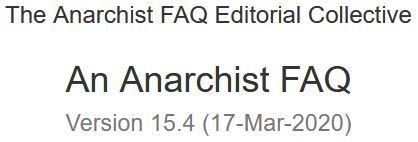
A.2.8 Is it possible to be an anarchist without opposing hierarchy?
No. We have seen that anarchists abhor authoritarianism. But if one is an anti-authoritarian, one must oppose all hierarchical institutions, since they embody the principle of authority. For, as Emma Goldman argued, “it is not only government in the sense of the state which is destructive of every individual value and quality. It is the whole complex authority and institutional domination which strangles life. It is the superstition, myth, pretence, evasions, and subservience which support authority and institutional domination.” [Red Emma Speaks, p. 435] This means that “there is and will always be a need to discover and overcome structures of hierarchy, authority and domination and constraints on freedom: slavery, wage-slavery [i.e. capitalism], racism, sexism, authoritarian schools, etc.” [Noam Chomsky, Language and Politics, p. 364]
Thus the consistent anarchist must oppose hierarchical relationships as well as the state. Whether economic, social or political, to be an anarchist means to oppose hierarchy. The argument for this (if anybody needs one) is as follows:
“All authoritarian institutions are organised as pyramids: the state, the private or public corporation, the army, the police, the church, the university, the hospital: they are all pyramidal structures with a small group of decision-makers at the top and a broad base of people whose decisions are made for them at the bottom. Anarchism does not demand the changing of labels on the layers, it doesn’t want different people on top, it wants us to clamber out from underneath.” [Colin Ward, Anarchy in Action, p. 22]
Hierarchies “share a common feature: they are organised systems of command and obedience” and so anarchists seek “to eliminate hierarchy per se, not simply replace one form of hierarchy with another.” [Bookchin, The Ecology of Freedom, p. 27] A hierarchy is a pyramidally-structured organisation composed of a series of grades, ranks, or offices of increasing power, prestige, and (usually) remuneration. Scholars who have investigated the hierarchical form have found that the two primary principles it embodies are domination and exploitation. For example, in his classic article “What Do Bosses Do?” (Review of Radical Political Economy, Vol. 6, No. 2), a study of the modern factory, Steven Marglin found that the main function of the corporate hierarchy is not greater productive efficiency (as capitalists claim), but greater control over workers, the purpose of such control being more effective exploitation.
Control in a hierarchy is maintained by coercion, that is, by the threat of negative sanctions of one kind or another: physical, economic, psychological, social, etc. Such control, including the repression of dissent and rebellion, therefore necessitates centralisation: a set of power relations in which the greatest control is exercised by the few at the top (particularly the head of the organisation), while those in the middle ranks have much less control and the many at the bottom have virtually none.
Since domination, coercion, and centralisation are essential features of authoritarianism, and as those features are embodied in hierarchies, all hierarchical institutions are authoritarian. Moreover, for anarchists, any organisation marked by hierarchy, centralism and authoritarianism is state-like, or “statist.” And as anarchists oppose both the state and authoritarian relations, anyone who does not seek to dismantle all forms of hierarchy cannot be called an anarchist. This applies to capitalist firms. As Noam Chomsky points out, the structure of the capitalist firm is extremely hierarchical, indeed fascist, in nature:
“a fascist system… [is] absolutist — power goes from top down … the ideal state is top down control with the public essentially following orders. “Let’s take a look at a corporation… [I]f you look at what they are, power goes strictly top down, from the board of directors to managers to lower managers to ultimately the people on the shop floor, typing messages, and so on. There’s no flow of power or planning from the bottom up. People can disrupt and make suggestions, but the same is true of a slave society. The structure of power is linear, from the top down.” [Keeping the Rabble in Line, p. 237]
David Deleon indicates these similarities between the company and the state well when he writes:
“Most factories are like military dictatorships. Those at the bottom are privates, the supervisors are sergeants, and on up through the hierarchy. The organisation can dictate everything from our clothing and hair style to how we spend a large portion of our lives, during work. It can compel overtime; it can require us to see a company doctor if we have a medical complaint; it can forbid us free time to engage in political activity; it can suppress freedom of speech, press and assembly — it can use ID cards and armed security police, along with closed-circuit TVs to watch us; it can punish dissenters with ‘disciplinary layoffs’ (as GM calls them), or it can fire us. We are forced, by circumstances, to accept much of this, or join the millions of unemployed… In almost every job, we have only the ‘right’ to quit. Major decisions are made at the top and we are expected to obey, whether we work in an ivory tower or a mine shaft.” [“For Democracy Where We Work: A rationale for social self-management”, Reinventing Anarchy, Again, Howard J. Ehrlich (ed.), pp. 193–4]
Thus the consistent anarchist must oppose hierarchy in all its forms, including the capitalist firm. Not to do so is to support archy — which an anarchist, by definition, cannot do. In other words, for anarchists, ”[p]romises to obey, contracts of (wage) slavery, agreements requiring the acceptance of a subordinate status, are all illegitimate because they do restrict and restrain individual autonomy.” [Robert Graham, “The Anarchist Contract, Reinventing Anarchy, Again, Howard J. Ehrlich (ed.), p. 77] Hierarchy, therefore, is against the basic principles which drive anarchism. It denies what makes us human and “divest[s] the personality of its most integral traits; it denies the very notion that the individual is competent to deal not only with the management of his or her personal life but with its most important context: the social context.” [Murray Bookchin, Op. Cit., p. 202]
Some argue that as long as an association is voluntary, whether it has a hierarchical structure is irrelevant. Anarchists disagree. This is for two reasons. Firstly, under capitalism workers are driven by economic necessity to sell their labour (and so liberty) to those who own the means of life. This process re-enforces the economic conditions workers face by creating “massive disparities in wealth … [as] workers… sell their labour to the capitalist at a price which does not reflect its real value.” Therefore:
“To portray the parties to an employment contract, for example, as free and equal to each other is to ignore the serious inequality of bargaining power which exists between the worker and the employer. To then go on to portray the relationship of subordination and exploitation which naturally results as the epitome of freedom is to make a mockery of both individual liberty and social justice.” [Robert Graham, Op. Cit., p. 70]
It is for this reason that anarchists support collective action and organisation: it increases the bargaining power of working people and allows them to assert their autonomy (see section J).
Secondly, if we take the key element as being whether an association is voluntary or not we would have to argue that the current state system must be considered as “anarchy.” In a modern democracy no one forces an individual to live in a specific state. We are free to leave and go somewhere else. By ignoring the hierarchical nature of an association, you can end up supporting organisations based upon the denial of freedom (including capitalist companies, the armed forces, states even) all because they are “voluntary.” As Bob Black argues, ”[t]o demonise state authoritarianism while ignoring identical albeit contract-consecrated subservient arrangements in the large-scale corporations which control the world economy is fetishism at its worst.” [The Libertarian as Conservative, The Abolition of Work and other essays, p. 142] Anarchy is more than being free to pick a master.
Therefore opposition to hierarchy is a key anarchist position, otherwise you just become a “voluntary archist” — which is hardly anarchistic. For more on this see section A.2.14 ( Why is voluntarism not enough?).
Anarchists argue that organisations do not need to be hierarchical, they can be based upon co-operation between equals who manage their own affairs directly. In this way we can do without hierarchical structures (i.e. the delegation of power in the hands of a few). Only when an association is self-managed by its members can it be considered truly anarchistic.
We are sorry to belabour this point, but some capitalist apologists, apparently wanting to appropriate the “anarchist” name because of its association with freedom, have recently claimed that one can be both a capitalist and an anarchist at the same time (as in so-called “anarcho” capitalism). It should now be clear that since capitalism is based on hierarchy (not to mention statism and exploitation), “anarcho”-capitalism is a contradiction in terms. (For more on this, see Section F)
#faq#anarchy faq#revolution#anarchism#daily posts#communism#anti capitalist#anti capitalism#late stage capitalism#organization#grassroots#grass roots#anarchists#libraries#leftism#social issues#economy#economics#climate change#climate crisis#climate#ecology#anarchy works#environmentalism#environment#solarpunk#anti colonialism#mutual aid#cops#police
33 notes
·
View notes
Text
thoughts on númenórean kings — tar-palantir:
his reign is a series of compromises, open secrets tolerated out of powerlessness, laws that he knows shall never be followed. the most he can do is repeal the state-sanctioned persecution of the faithful (they will still be refused employment under false pretence and accused of crimes by lying witnesses), reinstate some of the old customs (hardly any who didn't follow them in secret before will take part)...
he forbids slavery and the colonies rebel outright. meanwhile island estates exploit loopholes to end up with a system similar to the 20th century south in order to keep former slaves endlessly in debt to their masters, and there is nothing he can do, he hardly commands control of his own army.
the difference between him and míriel is that while he always hoped, he knew this was the likely end of all his efforts — understood that the minor issue with free will is that men can choose wrong and no amount of laws passed can change hearts.
míriel is more — naïve, perhaps? but it is a dangerous naïveté that soon gives way to a certain cynicism, when she sees the results and thinks that surely, the valar, the one, are purposefully ignoring her father's efforts. she no longer knows what she believes.
palantir knows about her opinions. for the second half of his reign, past the death of his wife, they are very close and míriel keeps as few secrets as she bears to.
...forgive me for always returning to the topic of religion (in my defense: palantir), but I imagine he has a devotion of a sort to manwë, which mostly shows in cry-laughing about wayward brothers.
he actually likes the name inziladun — he chose his regnal name in quenya for the symbolism, but in private he still answets to the one he was born with.
this is a headcanon I've pinched from one other person's pretty old post, but while he enjoys the histories, he doesn't like reading about fëanor because he feels too much like his father in temperament sometimes.
12 notes
·
View notes
Text
Editor's Note from The Black Sands of Socorro by Patricia A. Jackson

While researching Patricia A. Jackson’s entire body of Star Wars work for a short story anthology, I came across the West End Games sourcebook Star Wars: The Black Sands of Socorro (1997.) It’s a crucial work of Star Wars ephemera: The first creator of color writing for Star Wars in an official capacity, writing not just about individual characters of color, but centering entire cultures populated by non-white characters. A young Black woman in the 1990s wrote science fiction for Star Wars, worldbuilding with concepts like antislavery, indigeneity, linguistic divergence, and settler colonialism...while Disney-Lucasfilm in the 2020s ineffectually positions Star Wars as a post-racial fantasy.
I non-hyperbolically refer to Patricia A. Jackson as the “Octavia Butler of Star Wars,” not because fans of color need to be officially sanctioned by Lucasfilm to create Star Wars content, but because of how difficult it is to carve out anti-racist space in a transmedia storytelling empire. Challenging even in transformational fandom spaces (e.g. fan works), to broach race in affirmational fandom spaces—or while writing content for the property holder—is to be unflinchingly subversive.
And Jackson did it first. In an interview with Rob Wolf in 2022, Jackson described her experience writing race into Star Wars in the 1990s as an “experiment.” The planet, peoples, and cultures of Socorro were a way for Jackson to obliquely, yet concretely, center Blackness and racial justice into Star Wars, pushing the racial allegory constrained by the original trilogy to its limits.
Since it’s inception, Star Wars has spent much of it’s storytelling on the fringes of the galaxy (whether it’s Tatooine or Jakku, Nevarro or Ajan Kloss.) The Black Sands of Socorro is an extension of that trope, but where the Star Wars films used indigeneity as set dressing (eg. “Sand People”, Ewoks, Gungans, etc.) Jackson creates a vivid world where indigenous culture and settler colonists collide; where characters are coded with dark skin and central to the action. The planet Socorro is distinct as a Star Wars setting. As one of the only places in the galaxy where slavery is eradicated with a vengeance, Socorro refuses to let go of a plot line Star Wars media often leaves behind. Socorro is a haven from Imperial fascism, a space where readers are invited to imagine a story that does not center around occupation.
When I learned that Patricia A. Jackson no longer has a physical copy of The Black Sands of Socorro, I realized that I had the materials and the means to create a fanbound hard copy for her home library (well, and also for my own home library.) While this handmade book is not an exact reproduction of the RPG supplement, I hope my renvisioning of the supplement as an in-universe travel guide lives up to the original work.
As the idea of creating a travel guidebook based on the original material percolated, I reflected on the State of Race in Star Wars in the year since I compiled Designs of Fate, an anthology of my favorite Patricia A. Jackson short stories. In May 2022, actress Moses Ingram debuted as Inquisitor Reva Sevander, the deuteragonist in the Dinsey+ streaming Obi-Wan Kenobi series. As predicted by Lucasfilm—and any fan sick of alt-right Star Wars related “whitelash”—Ingram was promptly subjected to a firehose of racialized harassment and misogynoir.
Yep, fascist self-proclaimed fanboys complained about a Black woman Inquisitor in 2022, having no idea (or deliberately whitewashing) that one of creators of the entire freakin’ concept of Inquisitors was a Black woman writing for the Star Wars Adventure Journal three decades ago.
Then, a public facing Star Wars account (@StarWars on Twitter) broke precedent and slapped back at the trolls. Lead actor Ewan McGregor filmed a video retort, posted on @StarWars, stating “racism has no place in this world” and telling off the racist bullies: “you’re no Star Wars fan in my mind.” A few months later, Disney+ debuted it’s second flagship Star Wars streaming series of the year, starring a Latino actor as the protagonist. In the opening episode of Andor, a police chief describes Diego Luna’s eponymous lead as a “dark-featured human,” perhaps the closest the franchise has ever gotten to acknowledging out-of-universe constructions of race, to date. The series explored aspects of imperialism with more depth than Star Wars had previously done on screen, such as the Empire’s treatment of the native people of Aldhani. And, in November, the The Acolyte, a Disney+ series co-developed by Rayne Roberts, announced Amandla Stenberg and Korean actor Lee Jung-jae as its top-billed leads. Stenberg will be the first Gen Z, mixed race, Black, Inuit, queer, and non-binary actor to lead a major Star Wars series.
On the Patricia A. Jackson Star Wars front, in 2022, Jackson’s character Fable Astin was an easter egg in the Obi-Wan Kenobi series. Jackson will again write for Star Wars in an official capacity in From a Certain Point of View: Return of the Jedi, due for publication in Fall 2023. A series about Lando Calrissian, the galaxy’s most famous Socorran, is still in production, so I have my fingers crossed that we may soon see Socorro on camera.
I wonder if this past year will have been a fulcrum year for BIPOC fandom. Maybe Disney has finally realized it’s bad for business that the alt-right uses social media algorithms and Star Wars fan spaces as a soft recruiting ground to radicalize young white men? Maybe Star Wars as a franchise will continue to loudly disavow fan whitelash and firmly position performers of color in true leading roles? I really hope so. On the other hand, as much as I am in favor of increased representation in Star Wars storytelling, I am also troubled by Disney-Lucasfilm’s framing of the Galaxy Far, Far Away (GFFA) as “colorblind.” Recently, Star Wars fans have been asked to accept that in the (a long time ago) sci-fi futurepast GFFA, humans have always been post-racial, and it’s just a coincidence that racialized people were not caught on camera the way white characters have been for years. The galaxy is post-racial and it’s just acoincidence that the movers and shakers of the galaxy have largely been depicted as white men for the past 40 years of media.
For example, in the decade since Disney rebooted the expanded universe, fans have learned that Star Wars’s biggest galactic war criminal to never be depicted on screen is Admiral Rae Sloane, a bisexual Black woman who was the leader of Imperial remnant forces, one of the architects of the First Order, and personal mentor to General Hux. Under Disney-Lucasfilm’s post-racial retcon of the Star Wars universe, the allegorical fascists are intersectional equal opportunity employers (at least in expanded universe content like animation, video games, and novels.) Along those lines, several of the franchise’s newly introduced, prominent women of color have been part of the Empire: Imperial loyalist Cienna Ree (Lost Stars), Inferno Squad leader Iden Versio (Star Wars: Battlefront II) former stormtrooper Jannah (Episode IX), First Order pilot Tamara Ryvora (Star Wars: Resistance), Inquisitor Trilla Sundari (Jedi: Fallen Order), Captain Terisa Kerrill (Star Wars: Squadron) and, most recently, Inquisitor Reva Sevander. Once the sole purview of stodgy, very white and very British men (demonstrably so even in the sequel trilogy movies,) now anyone can be a stooge of the Empire.
That’s not to say that marginalized people can’t collude with fascism, or that there haven’t been heroic characters of color introduced in recent years. Rather, I posit that in order to sell audiences on the post-racial/colorblind GFFA, fascist-of-color characters like Rae Sloane or Giancarlo Esposito’s Moff Gideon (The Mandalorian) are created by necessity. The franchise wants to at once be racially inclusive and yet never directly address race. In Star Wars, real world oppression is primarily explored through allegory—such as Solo (2018)’s bit on droid rights, the clone army, or the myriad of non-human alien bodies that nonetheless are coded with racial stereotypes. A lot has been said about how allegory in sci-fi allows audiences to grapple with inequality from a comfortable distance, and not enough has been said about which audience is being prioritized for comfort.
What does it mean when race is supposedly a non-issue for humans in the GFFA, but creators and actors with marginalized identities cannot participate in Star Wars in any capacity without experiencing identity-targeted harassment? In the past ten years, this has been true even for white women like Kathleen Kennedy and Daisy Ridley, but the vitriol has been most strongly directed towards Black women like Lucasfilm Story Group lead Kiri Hart, author Justina Ireland and The High Republic Show host Krystina Arielle. Can the Galaxy Far, Far Away truly be “colorblind” or “post-racial” (never-racial?) if the narrative continually centers white characters and replicates all the common racial inequities seen in commercialized Hollywood storytelling? Upon the release of The Force Awakens in 2015, critic Andre Seewood aptly described Finn’s positioning in the story as “hyper-tokenism,” even presciently predicting that Finn would continue to be hyper-tokenized in Episodes VIII and IX. As the narrative veered away from Finn, it also left unrealized a stormtrooper rebellion plot line where Finn could have been, in effect, a Black abolitionist. Actor John Boyega’s critique of his experience in the sequel trilogy aligns with Seewald’s assessment: “Do not bring out a Black character, market them to be much more important to the franchise than they are and then have them pushed to the side.”
Published in 1997, The Black Sands of Socorro came before Finn, before Mace Windu, back when all the melanin of Star Wars could be found in Billy Dee Williams’s singular swagger and James Earl Jones’s distinctive voice. Back then, the most prominent Black actress in the original trilogy was dancer Femi Taylor, who played Oola, the hypersexualized green twi’lek fed to the rancor in Return of the Jedi. Bantam Spectra, the publisher that held the license for Star Wars from 1991 to 1999, had no leading characters of color in its’ Expanded Universe. The first full length Star Wars novel by a writer of color, Steven Barnes’s The Cestus Deception15, would not be published until 2004. Even though the book featured two protagonists of color, they would not be depicted on the cover. At Comic-Con in 2010, I spoke with Tom Taylor, a white Australian comic book writer who tried to make the lead family in Star Wars: Invasion (2009) a Black one, but was shut down during the creative process. The comic instead depicts a family of blondes, because the publishers did not think fans would embrace leads of color. All this to say, the inclusion of melanated characters in Star Wars has been so, so hard fought. It’s incredible The Black Sands of Socorro exists at all. It’s more than worthy of celebration, and I’m floored that more attention has not been brought to it.
Patricia A. Jackson is a smuggler.
This sourcebook was explicitly written to assist fans in telling their own Star Wars stories, and in it Patricia A. Jackson smuggled in emphatic allusions to the Black Panther movement and the trans-Atlantic slave trade, smuggled in commentary on indigeneity and settler colonialism, and smuggled in multiple ways for fans to envision characters of color. Her writing has consistently added richness to the GFFA, and in The Black Sands of Socorro she envisions multiple histories for multiple cultures coded as non-white. She ensured the existence of not mere tokens, but flourishing societies of people of color in Star Wars.
The coda for The Last Jedi again shows how perilously close to tokenization characters of color, particularly Black characters, are in modern day Star Wars. In this film, the franchise returns to itsprevious exploration of slavery with the depiction of enslaved children on Canto Bight. The last speaking lines of the film are from Oniho Zaya (played by Josiah Oniha, a young Black British actor) who recounts Luke Skywalker’s heroic exploits to the other children. The film then closes out by showing that one of the downtrodden children is Force-sensitive—a future hero in the Star Wars mythos. In a film where every single Force-user depicted is white, the next generation kid with the potential is, again, a young white boy. Once again, the Black character can only serve the narrative in a supporting role. A franchise depicting a colorblind fantasy continually reifies racial and gender hierarchies in America. With The Acolyte, scheduled for release in 2024, it’s possible the franchise may finally be shifting past hyper-tokenism. In the meantime, fans of color and our erstwhile allies will continue doodling in the margins.
In the end, the sequel trilogy left the Canto Bight plot line (and the overarching slavery plot line started in Episode I) unresolved. I’d like to think the Black Bha’lir strafed Canto Bight and grabbed those kids. It seems like something they would do. Out among the stars, Oniho Zaya is adventuring with Drake Paulsen, and his story does not bracket another characters’; he is central. The Black Sands of Socorro is a launching pad for stories like that. It represents how fans of color have always carved out pieces of Star Wars for ourselves.
#socorro#star wars legends#swrepmatters#star wars adventure journal#star wars d6#patricia a. jackson#fanbinding#binders note
40 notes
·
View notes
Text
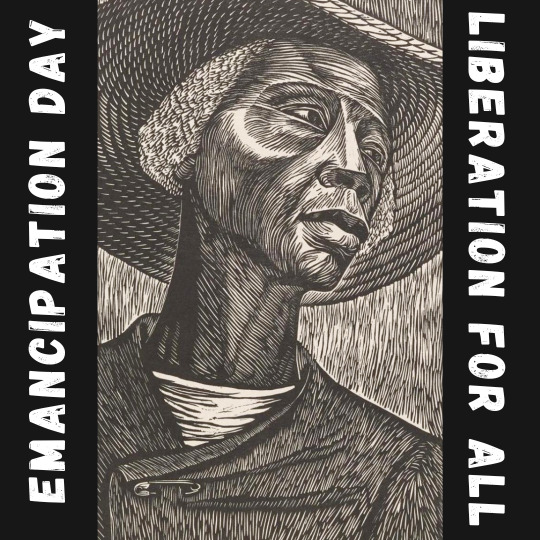
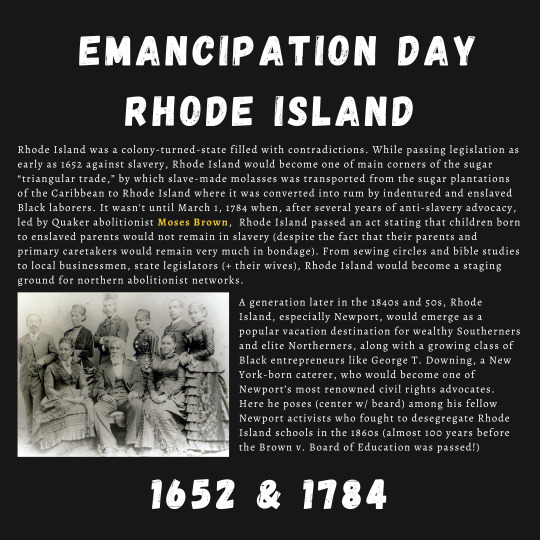
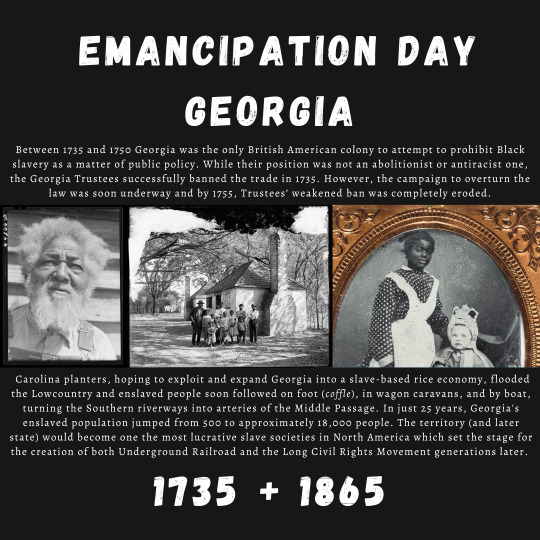
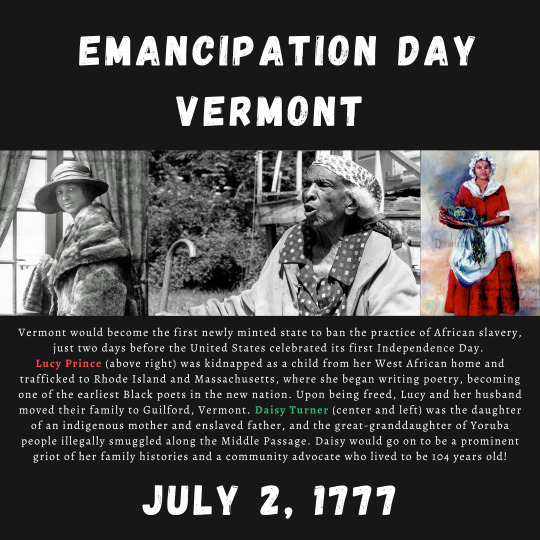
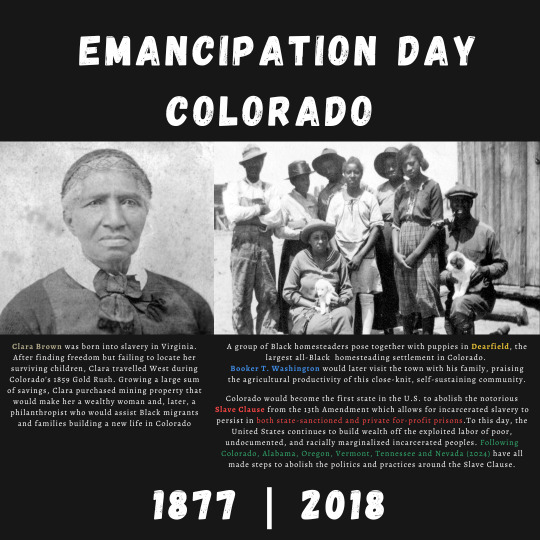
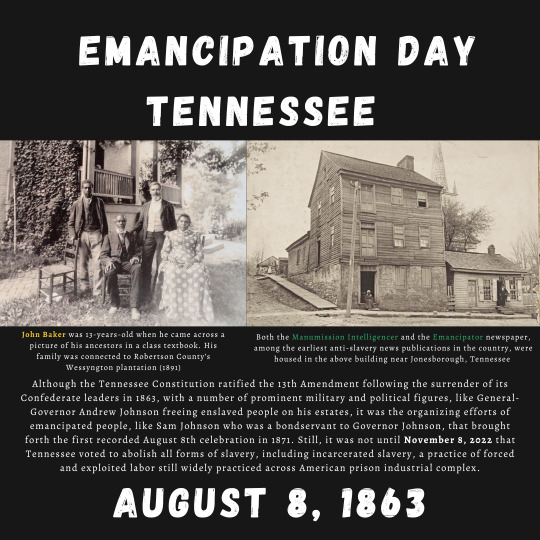
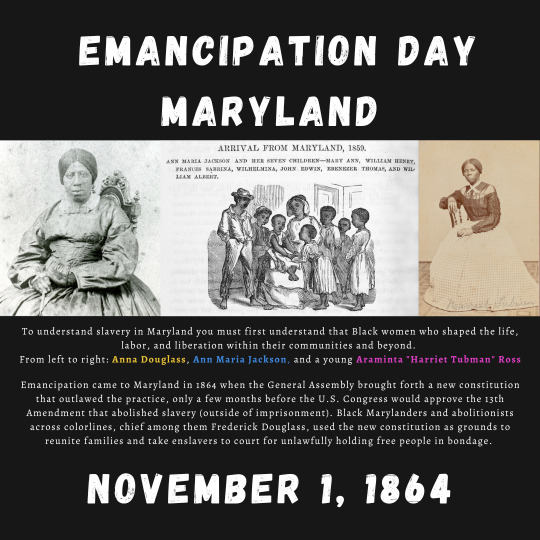
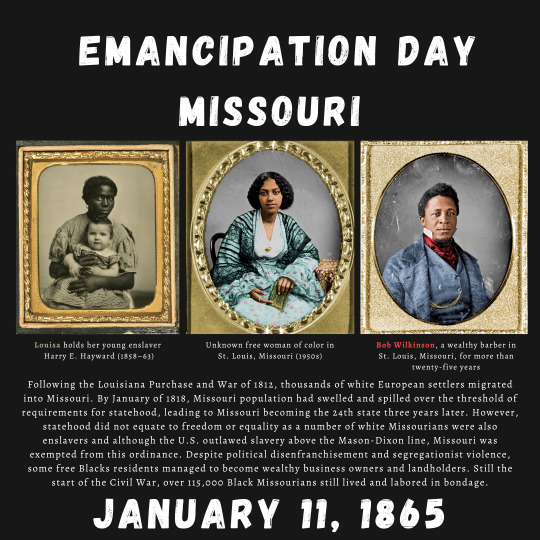
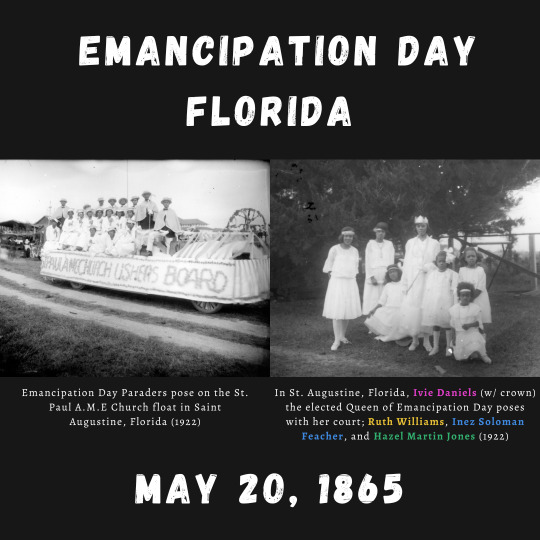
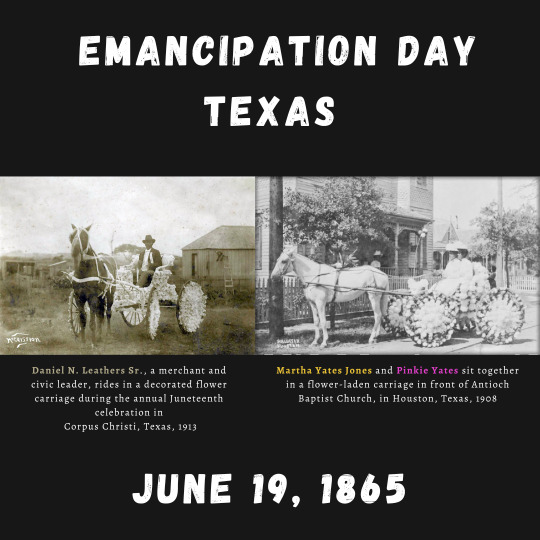
On August 8, 1863, Tennessee ratified the 13th Amendment, abolishing the domestic slave trade of Black + indigenous folks in the state. 159 years later in 2022, Tennessee folks voted to abolish all forms of slavery in the state, including the "Slavery Clause" that allows for incarcerated slavery to persist in both state-sanctioned + private for-profit prisons.To this day, the United States continues to build wealth off the exploited labor of impoverished, (dis)abled, undocumented + racially marginalized people who are incarcerated.
Each community and country that participated in the Transatlantic Slave Trade has its own emancipation day (or year).
And yet, as of 2023, Colorado, Alabama, Oregon, Vermont, Tennessee + Nevada (2024) are the only U.S. states who have made steps to abolish slavery in all its forms. That's not even touching how slavery, both state-sanctioned and illegal bondage, continues to bleed into our everyday places from child labor + forced s*x work to penal plantations and chocolate factories (looking at you at hershey chocolate)
In this second wave of Jim & Jane Crow flooding our world, we must arm ourselves with the tools to disrupt systems, distribute resources + deepen our collective action + good trouble ~
If you wanna explore the full Emancipation post + readings, come join us in the garden community over on Patreon where we upRoot our miseducation through history lessons, community conversations + book talks + decolonizing our everyday practic, our classrooms + our communities.
Reclaim your emancipation + immerse yourself in the ancestral, antiracist liberation! 🖤✊🏾✨️
#prison abolition#our world#black lives matter#ecosystem of white supremacy#our history is your history#politics#13th amendment#padawan historian#cite black women#reclaim the fourth#emancipation day
91 notes
·
View notes
Note
For sure and fair play, HP was a long project! But yeah, JKR fiercely defending her inconsistencies almost forces us to fiercely point them. Out of spite. I do get that many issues were out of Harry’s radar and understanding, but JKR trying to convince the audience through interviews that the wizarding world doesn’t have the same prejudices as the muggle world just makes me conclude that she must be herself incredibly unaware of the privileges herself and people in her circle possess. Plus the whole HIV parallel that just sounds so misguided and sours the text to me. Yet here I am! Love your blog xx
the lycanthropy-as-aids metaphor is extraordinary in how tone-deaf it is and it pisses me off...
especially because it doesn't make sense at any point in the story. the complete transformation of how house elves think of their enslavement between chamber of secrets [in which dobby mentions whisper-networks of politically-engaged elves decrying their treatment at the hands of wizards] and goblet of fire is really fucking irritating, but it has some slight defence in the narrative shift that the series undergoes after prisoner of azkaban from children's boarding-school literature to something approaching folkloric epic.
[that is, chamber of secrets needs to wrap up with dobby being freed, the malfoys getting their - comparatively benign - comeuppance, and everything being well, because children's stories always end with that everything back to normal vibe, and so the fact that harry has just learned that the wizarding world has institutionalised chattel slavery and been remarkably unbothered by that fact can be shelved by the genre conventions. after prisoner of azkaban, the books end more ambiguously and are more interlinked, as they start moving towards their big conclusion in deathly hallows, and are also darker in tone. and yet she decided to use this shift in tone... to make elves love being enslaved...]
which is to say, perhaps the lycanthropy-as-aids metaphor could be justified as a standalone plot device within prisoner of azkaban - since the reader does hear lupin explain not only the shame and stigma wizarding society's poor understanding of his condition causes, but also how the state's callous discrimination against werewolves impacts his ability to access healthcare, education, and employment - which then doesn't work after the series' narrative shift, when jkr wanted to introduce characters like fenrir greyback...
except it doesn't work even then! because at the end of prisoner of azkaban lupin turns into a rampaging monster who has a desperate, primal urge to eat children - and reveals his condition to be legitimately dangerous to an extent which entirely justifies why parents would feel uneasy about him being employed in a school.
[and - especially - being employed without dumbledore appearing to put any safeguards in place to keep both lupin and his students safe.]
one part of the tragedy of the aids crisis is baseless social stigma at an individual level, absolutely, and lupin - who is a nice [ish] man who doesn't meet the stereotypes wizards appear to have of untransformed werewolves - suffers from this.
but another is the way this stigma drove a state-sanctioned looking-the-other-way and refusing to act while the bodies piled up - something there is no parallel for in the series' worldbuilding around werewolves, not least because it tends to have a positive view of states and their institutions [state corruption is always located in individuals - fudge, umbridge - rather than in the structures which enable them, which are seen as fundamentally sound, for example] which i would imagine most people who know even a cursory amount about the official response to the aids crisis are unlikely to share...
and another is that - since hiv has a very, very long asymptomatic period - it was spreading without anyone knowing it existed for years, if not decades, before it burst into the public consciousness with death on wholesale scale. and then it continued to spread in terror and confusion - for years, you couldn't know if you had it until you started getting sick, and then, when you could access tests [if you could access tests], you were told it was a death sentence, and you would be unable to pinpoint when and by whom you'd been infected, and you would be unable to know how many people you might have infected in turn.
nothing about the series' presentation of lycanthropy corresponds to this.
but, with this said, i think there are two parallels between the conditions which could be interesting in the hands of someone who approached them with care.
the first is to see lupin's role as the series' one "good werewolf" as a mirror to the fact that public opinion became considerably more sympathetic to those living with and dying of hiv/aids when it began to emerge that people [white! "respectable"! heterosexual!] had been infected via blood transfusions and treatments for haemophilia. queer men and intravenous drug users could be dismissed as having brought their infections upon themselves... but not someone [white! "respectable"! heterosexual!] who went into hospital for a routine operation and came out slowly dying.
lupin - the son of a prominent civil servant [with all the class status that entails], bitten as a child through no fault of his own, hogwarts educated, connected to establishment figures like dumbledore - makes a great poster child for a milquetoast "werewolves aren't all bad" campaign which manages not to offend the state's sensibilities by asking it to stop demonising pretty much every other werewolf in history...
the second is to think about the generational divide.
in countries where access to appropriate medication is widespread [and that there are many countries where this isn't the case shouldn't be forgotten], hiv is easily treatable, easily manageable, easily rendered untransmissable, and easily preventable. the quality of life - and the life expectancy - of hiv positive people is now broadly equal to that of their hiv negative peers. the number of aids-related deaths worldwide annually has more than halved since 2010 and, in 2024, it is possible to say that virtually nobody who is newly diagnosed with hiv will go on to develop aids.
this is - sincerely - one of the single greatest achievements in the history of medicine. and it's completely changed how we think and talk about hiv, what it means to be diagnosed with it, what it means to live with it, and what it means to know [and to love, and to fuck] someone who has it.
if we imagine that there are similar advances in the treatment of lycanthropy - with the wolfsbane potion, which seems pretty bare-bones, replaced with something which made the impact of the werewolf's transformation even less severe [or which prevented it altogether] - then being a werewolf in the 2020s would mean something very different than it did in the 1980s.
and if - say - lupin is right, and teddy inherits his condition, thinking about how enormously different his experience being a werewolf might be from his father's [even at a very basic level - not having to turn down invitations based on the moon cycle, for example], and how he would come to understand himself and understand lupin through this different experience, would be a genuinely fascinating premise for a fic.
but not if jkr was writing it.
66 notes
·
View notes